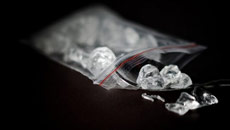In what could lead to new anti-cancer drugs, researchers have developed a new method to produce molecules that have a similar structure to peptides which are naturally produced in the body to fight cancer and infection.
The peptide mimics have been found to be successful in laboratory tests on colon cancer cells, the study said.
The new peptide mimics, called triplexes, have a similar 3D helix form to natural peptides.
Artificial peptides had previously been difficult and prohibitively expensive to manufacture in large quantities, but the new process takes only minutes and does not require costly equipment.
"The beauty is that these big molecules assemble themselves. Nature uses this kind of self-assembly to make complex asymmetric molecules like proteins all the time, but doing it artificially is a major challenge," said professor Peter Scott at the University of Warwick in Britain.
Traditional peptides that are administered as drugs are quickly neutralised by the body's biochemical defences before they can do their job.
A form of complex chemical self-assembly, the new method developed at Warwick addresses this problem by producing very stable molecules.
"The chemistry involved is like throwing Lego blocks into a bag, giving them a shake, and finding that you made a model of the Death Star," Scott said.
"The design to achieve that takes some thought and computing power, but once you have worked it out the method can be used to make a lot of complicated molecular objects," he said.
The study appeared in the journal Nature Chemistry.





